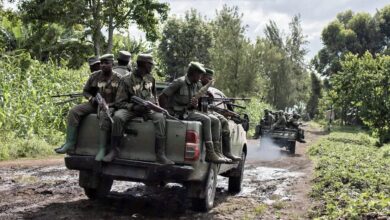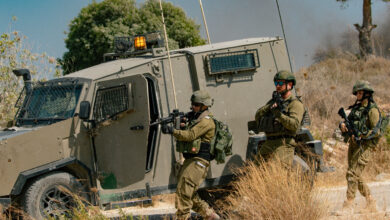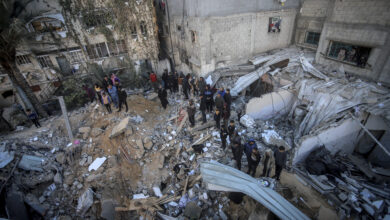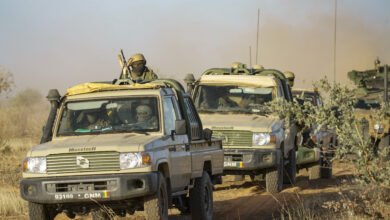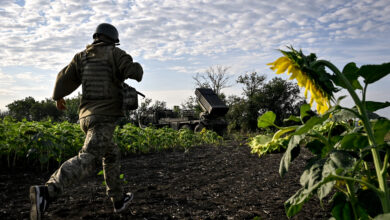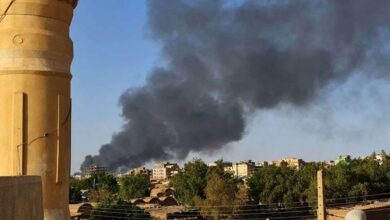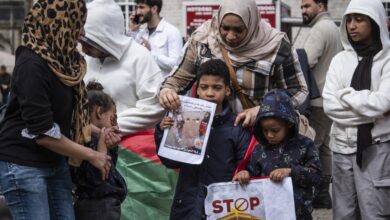Dogon hunters killed more than 100 people in an attack on a Fulani village in central Mali’s Mopti region on Saturday, March 23, local officials said, as top U.N. officials visited the country.
“The new toll is 115 dead” in the village of Ogossagou, said Cheick Harouna Sankare, mayor of neighbouring Ouenkoro. “It is a massacre of Fulani civilians by traditional Dogon hunters.”
Boubacar Kane, the governor of Bankass district, which covers Ogossagou, said the “provisional toll” was 115. Survivors had accused traditional hunters of carrying out the attack, he added.
However, Moulaye Guindo, the mayor of Bankass town, told Reuters that 134 bodies had been recovered by gendarmes, and that another nearby Fulani village, Welingara, was also attacked.
A Malian soldier on the ground told journalist Mohamed Salaha that 134 people had been killed and 51 injured.
The attack began at dawn Saturday in the village, near the border with Burkina Faso, several sources told AFP. The district has been the scene of frequent inter-communal violence.
The victims were shot or hacked to death with machetes, a security source said. Malian troops with local support arrived at the site in the afternoon, and they gave a toll of at least 105 dead, a security source added.
Two witnesses questioned separately by AFP said hunters had burned nearly all the huts in the village.
Mahamat Saleh Annadif, the Special Representative of the U.N. Secretary-General in Mali, said a rapid response force from the Minusma peacekeeping mission was immediately deployed to the scene, and measures to evacuate the wounded to Sévaré were taken.
UN Security Council visits Mali
The massacre took place as a delegation from the United Nations Security Council visited the Sahel region to assess threats. It faces a June deadline to extend the mandate of the Minusma peacekeeping mission in Mali, which began in 2013 and has about 12,000 troops and 1,750 police deployed.
France, which is leading the two-day Security Council visit to Mali along with Germany and Côte d’Ivoire, is also pushing for U.N. funding for the G5 Sahel Joint Force that was set up by Burkina Faso, Chad, Mali, Mauritania and Niger in 2015, an initiative which was spearheaded by France.
Security Council ambassadors began a series of meetings with Mali’s president Ibrahim Boubacar Keita, his cabinet and other officials on Friday, discussing security in the country and the slow implementation of a 2015 peace agreement.
“Clear sense of frustration among many Security Council members at pace of implementation of Mali Peace Agreement,” the United Kingdom’s representative on the delegation, Stephen Hickey tweeted on Saturday. “Security Council prepared to impose sanctions on those who impede its implementation.”
Clashes between Fulani herders and the Dogon ethnic group
While local attacks are fuelled by accusations of grazing cattle on Dogon land and disputes over access to land and water, the area is also troubled by jihadist influence.
In the past four years, jihadist militants have emerged as a threat in central Mali. A group led by radical Islamist preacher Amadou Kouffa has recruited mainly from the Muslim Fulani community.
Kouffa’s group – Katibat Macina or the Macina Liberation Front – is an affiliate of Ansar Dine. It became part of the Support Group for Islam and Muslims (JNIM) in March 2017, when several smaller groups including the Sahara branch of Al-Qaeda in the Islamic Maghreb, Ansar Dine and Al-Mourabitoun merged. JNIM’s leadership has pledged allegiance to Al-Qaeda leader Ayman al-Zawahiri.
There have been repeated clashes between the nomadic Fulani herders and the Dogon ethnic group.
Last year that violence cost the lives of 500 civilians, according to U.N. figures.
In January, Dogon hunters were blamed for the killing of 37 people in another Fulani village, Koulogon, also in Baskass district.
The Fulani have repeatedly called for more protection from the authorities. The government in Bamako has denied their accusations that it turns a blind eye to – or even encourages – Dogon attacks on the Fulani.
Update March 24 In the wake of the massacre, the government of Mali dissolved the Dogon “self-defense movement” Dan Nan Ambassagou.
“For some time, the Dan Nan Ambassagou Association has departed from its initial objectives, despite repeated warnings from local administrative authorities,” the government said in a March 24 statement.
After a meeting of its fighters on March 20, the group said that due to “attacks of armed bandits dressed in uniform” it would resume patrols “in order to secure the people and their property.”
Dan Nan Ambassagou had agreed to a ceasefire on September 27, 2018, it said.
Mali’s government also announced it had replaced senior military officers in the wake of the Ogossagou massacre.
Once considered a beacon of democracy and stability in Africa, Mali in recent years has been dogged by a coup, civil war and Islamist terrorism.
The recent unrest in the Sahel began in Mali in 2012 with Tuareg separatist uprising against the state, which was exploited by Islamist extremists linked to al-Qaeda who took key cities in the desert north.
France began its Operation Serval military intervention in its former colony early the next year, driving the jihadists from the towns, but the militant groups morphed into more nimble formations operating in rural areas, sometimes winning over local populations by providing basic services and protection from bandits.
The insurgency has gradually spread to central and southern regions of Mali, and across the borders into neighboring Burkina Faso and Niger.
Large swathes of the country remain outside government control, despite the 2015 peace accord designed to isolate the Islamists.
The French mission evolved into the current Operation Barkhane, which has roughly 4,500 personnel deployed with a mandate for counter-terrorism operations across the region.
With reporting from AFP





